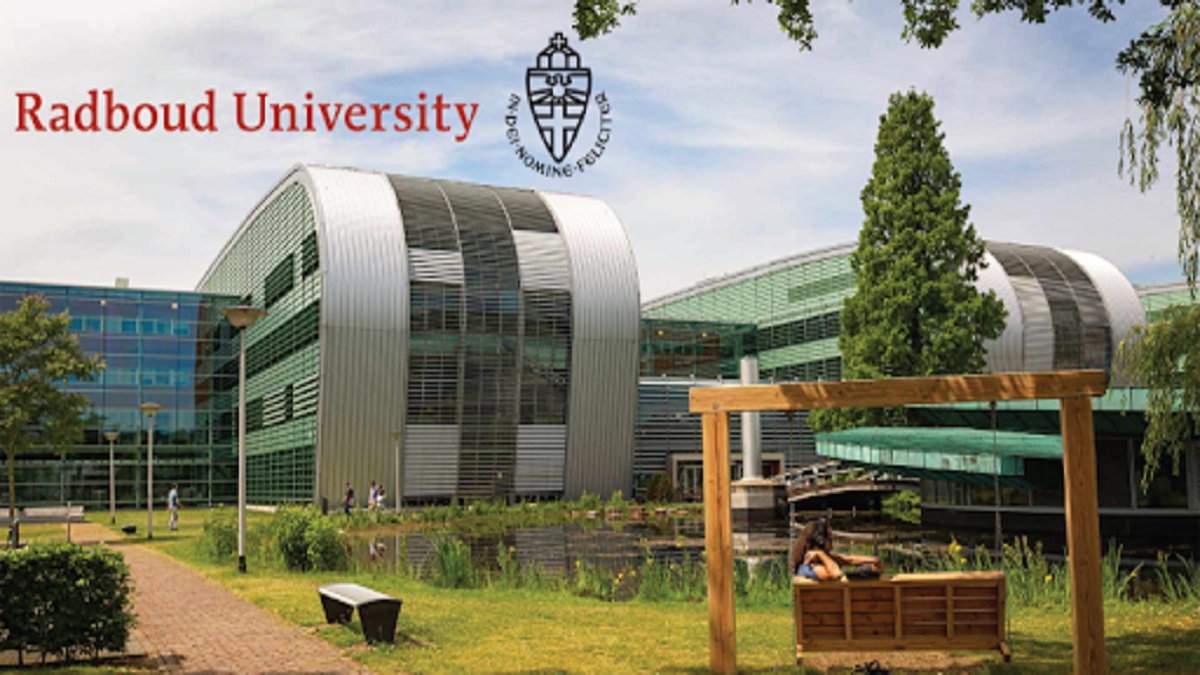
The Assistant Professor position requires an aptitude for research and a strong track record in publications on our core themes, as well as a heart for teaching. Above all, we are seeking a highly motivated, committed and collaborative candidate with a cooperative attitude and strong team skills.
The transformations that societies and economies undergo to become sustainable consist of far-reaching changes. In regulating these changes, people with an understanding of environmental governance play a crucial role. Do you want to contribute to discussions about transformative change and do you have a heart for teaching? As an Assistant Professor, you conduct research and educate new generations of students on sustainability and change.
The Chair Group of Environmental Governance and Politics (EGP) at the Nijmegen School of Management, Radboud University, is looking for an Assistant Professor (tenure track) in the field of environmental governance.
We are looking for a colleague who can strengthen our research programme by proactively contributing to discussions on transformative change from a (global) environmental governance, earth system governance or multi-level governance perspective. Expertise on human – non-human relations, including animal rights and rights of nature perspectives would be an advantage.
The Assistant Professor position requires an aptitude for research and a strong track record in publications on our core themes, as well as a heart for teaching. Above all, we are seeking a highly motivated, committed and collaborative candidate with a cooperative attitude and strong team skills.You will be expected to contribute to the research and teaching programmes of the EGP chair group. You will teach courses in the Bachelor’s programme in Geography, Planning and Environment and the Master’s programme in Environment and Society Studies (ESS). You will conduct disciplinary, interdisciplinary, and transdisciplinary research, publish in international high-quality journals, attract external funding for research projects, acquire and supervise PhD projects, build international networks with academics and societal partners, and contribute to general management and coordination tasks in the chair group and department.
Profile
- You have a PhD degree in a relevant social scientific field (e.g. environmental studies, political science, public administration, sociology).
- You have published relevant publications in internationally recognised high-quality journals and experience with attracting research funds and realising societal impact.
- You have a Dutch university teaching qualification (BKO or equivalent) (experience with teaching quantitative methods would be an advantage).
- You have a clear research agenda and niche (theoretically, methodologically and empirically), preferably on rights of nature and animal rights perspectives.
- You have a thorough understanding of and ambition for the transformative changes needed to address one or different major sustainability issues (biodiversity loss, climate change, pollution, land-use change, sustainable economies, environmental justice, animal welfare and rights).
- You have substantial international experience and network connections.
- You have excellent English language skills and a willingness to learn Dutch (working knowledge of additional languages would be an advantage).
- You have a proven ability to collaborate in inter- and transdisciplinary teams.
We are
The Nijmegen School of Management enables students, institutions and companies, societal actors and governments to play their part in a transformation towards sustainable societies. In doing so, the faculty is committed to Radboud University’s mission of contributing to a healthy, free world with equal opportunities for all. In the context of our mission ‘Responsible governance for sustainable societies’, we address scientific and societal challenges from a good governance perspective. Our work focuses on the topics Beyond Economy, Climate, Inclusivity, Safety, and Democracy. By building, questioning and extending the United Nations Sustainable Development Goals (UNSDG’s), we acknowledge their interrelatedness and focus on a number of grand challenges within society. On topics such as inequality, gender, decent work and poverty, we contribute to innovation and sustainable growth. Besides that, we address environmental and climate challenges, which we seek to contribute towards resolving.
At the Nijmegen School of Management, academic research and teaching are carried out in challenging educational programmes. These programmes are offered in the areas of Business Administration, Economics and Business Economics, Geography, Planning and Environment, Political Science and Public Administration. Academic research takes place within the Institute for Management Research (IMR). Research is carried out within the above mentioned domains and in interdisciplinary research groups: the Hot Spots. Around 5,000 students study at the Nijmegen School of Management, and the faculty has around 350 FTE staff. The EGP chair group is a growing, inclusive and collaborative social scientific team of engaged researchers who aim to critically reflect on and contribute to sustainability transformations. We develop useful insights into the why and how of such processes, which can serve to enable, accelerate, deepen and broaden the transformation towards a global sustainable society. For this purpose, we engage in research, teaching and collaboration with societal partners. We are specialized in agriculture, animal, biodiversity, circular economy, climate change, energy, and freshwater governance. Since the chair group is embedded in the Department of Geography, Planning and Environment, we often approach sustainability issues from a spatial perspective. We focus on transdisciplinary research, incorporate futures studies, and mostly apply qualitative methods and comparative analyses. Theoretically, we mainly use discursive, institutional, and practice-based perspectives.
Radboud University
We want to get the best out of science, others and ourselves. Why? Because this is what the world around us desperately needs. Leading research and education make an indispensable contribution to a healthy, free world with equal opportunities for all. This is what unites the more than 24,000 students and 5,600 employees at Radboud University. And this requires even more talent, collaboration and lifelong learning. You have a part to play!
We offer
- Employment for 1.0 FTE.
- The gross monthly salary amounts to a minimum of €3,821 and a maximum of €5,230 based on a 38-hour working week, depending on previous education and number of years of relevant work experience (salary scale 11).
- You will receive 8% holiday allowance and 8.3% end-of-year bonus.
- It concerns a temporary employment for It concerns a temporary employment for 1.5 years with a permanent contract after positive evaluation.
- You will be able to use our Dual Career and Family Care Services. Our Dual Career and Family Care Officer can assist you with family-related support, help your partner or spouse prepare for the local labour market, provide customized support in their search for employment and help your family settle in Nijmegen.
- Working for us means getting extra days off. In case of full-time employment, you can choose between 29 or 41 days of annual leave instead of the legally allotted 20.
Additional employment conditions
Work and science require good employment practices. This is reflected in Radboud University’s primary and secondary employment conditions. You can make arrangements for the best possible work-life balance with flexible working hours, various leave arrangements and working from home. You are also able to compose part of your employment conditions yourself, for example, exchange income for extra leave days and receive a reimbursement for your sports subscription. And of course, we offer a good pension plan. You are given plenty of room and responsibility to develop your talents and realise your ambitions. Therefore, we provide various training and development schemes.
Would you like more information?
For questions about the position, please contact Prof. Ingrid Visseren-Hamakers, Chair Environmental Governance and Politics at ingrid.visseren@ru.nl.
Practical information and applications
You can apply until 22 May 2022, exclusively using the button below. Kindly address your application to Prof. Ingrid Visseren-Hamakers. Please fill in the application form and attach the following documents:
- A letter of motivation.
- Your CV.
- Research statement (max. 400 words).
- Teaching statement (max. 400 words).
The first round of interviews will take place on Thursday 9 June. The second round of interviews will take place on Thursday 16 June. You would preferably begin employment on 15 August 2022.
We can imagine you’re curious about our application procedure. It offers a rough outline of what you can expect during the application process, how we handle your personal data and how we deal with internal and external candidates.

We drafted this vacancy to find and hire our new colleague ourselves. Recruitment agencies are kindly requested to refrain from responding.





